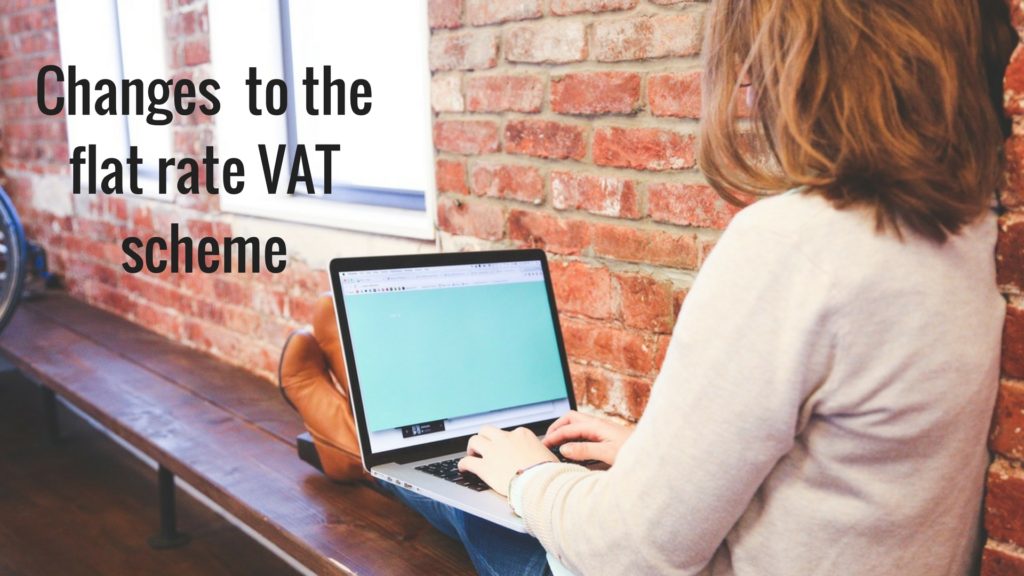If you’re a freelancer, contractor or small business owner currently reaping the rewards of the flat rate VAT scheme, regrettably your luck may be about to change.
Draft changes to the flat rate VAT scheme to take effect from April 2017, propose the introduction of a new category of trader known as a “limited cost trader” with an associated VAT flat rate of 16.5%.
If you’re not using the flat rate VAT scheme, here’s a quick recap:
What is the flat rate VAT scheme (FRS)?
The VAT FRS allows you to charge your customers the full VAT rate of 20% but you pay a lower percentage rate to HMRC. The percentage you pay HMRC is the percentage that best corresponds to your business sector from the list produced by HMRC.
For example, run an advertising business – then you will use a VAT rate of 11%. Journalists and those in the entertainment sector will pay 12.5%.
In exchange for this benefit, you have to give up the right to reclaim VAT on your purchases, except capital goods worth more than £2,000. Click here for more details.
Although the scheme was introduced to make things administratively easier for small business owners (as it saves having to keep track of VAT on purchases), one of the positive side effects was the additional cash you could generate.
Why has a change been proposed?
HMRC clearly thinks that the scheme has been overly generous and now wants to clamp down on so called “abuse” by reducing the cash advantage enjoyed by service related businesses.
Not all flat rate scheme users will be affected. If you fall into the new category of “limited cost trader” you will have to use the new flat rate of 16.5%.
You will come under the “limited cost trader” category if you:
- Spend less than 2% of your gross sales on goods (not services) in an accounting period or;
- Spend more than 2% of your sales but less than £1,000 per year.
Spending on Goods can’t include capital goods (such as IT equipment), food and drink or vehicle and other motoring expenses such as fuel. Click here for HMRC’s technical guidance.
These proposed changes are going to be particularly troublesome to businesses such as accountants and IT or marketing consultants all of whom have low (goods) cost bases but incur VAT on services such as phone, software licences, rent and digital technology.
The draft guidance is also suggesting that businesses should review their spending on goods for each VAT quarter after April 2017 i.e on a period by period basis.
Update: 28 February 2017 ~ HMRC has updated it’s guidance contained in the VAT notice 733. Possible ways to escape being caught under the “limited cost trader”category such as creating a secondary activity buying and selling goods have now been added to the list of exclusions from the “relevant goods” definition. HMRC has also emphasised that goods must be used exclusively for business purposes with no private use.
What are the options?
The final details have yet to be announced by HMRC but your options could be one of the following:
1 – Despite additional administrative costs, it may be more profitable for you to switch from the flat rate scheme to the standard VAT scheme. On the standard VAT scheme you will be allowed to offset the VAT you pay on your purchases (goods and services).
2 – If you are currently voluntary VAT registered (i.e. your turnover on a rolling 12 months basis is under the £83,000 threshold), you may want to consider de-registering from VAT.
3 – If you’ve done your calculations and taken into account the additional administrative costs in staying with the flat rate scheme, given the changes, it may still be worth you being flat rate VAT registered.
What next?
Check whether you fall under the definition of “limited cost trader”.
Chat to your accountant (I’m here) about the various options I’ve outlined above but I wouldn’t recommend taking any firm action until the final details have been released from HMRC. You can sign up here for my regular tips and inspiration if you would like to keep abreast with HMRC plans.
You may want to consider setting aside funds to finance any increase in your VAT bill.
P.S. Pass it on
Enjoyed this post? Found it helpful? Please consider sharing with other small business owners using the buttons below. And if you’re keen to learn more about one-to-one training packages I offer individual owners creating, running and growing their small businesses you can take a peep at what’s on offer here.

